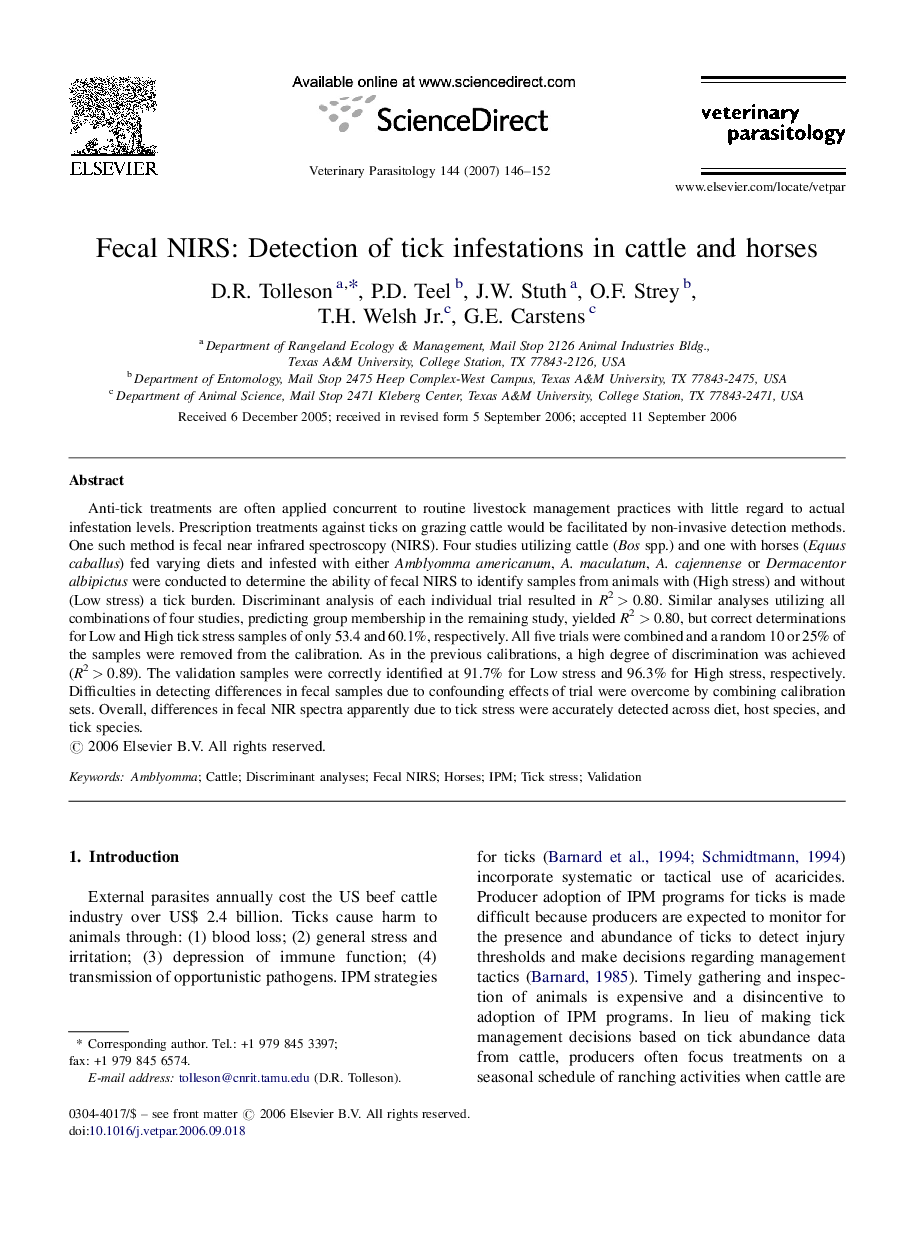| کد مقاله | کد نشریه | سال انتشار | مقاله انگلیسی | نسخه تمام متن |
|---|---|---|---|---|
| 2472190 | 1555786 | 2007 | 7 صفحه PDF | دانلود رایگان |

Anti-tick treatments are often applied concurrent to routine livestock management practices with little regard to actual infestation levels. Prescription treatments against ticks on grazing cattle would be facilitated by non-invasive detection methods. One such method is fecal near infrared spectroscopy (NIRS). Four studies utilizing cattle (Bos spp.) and one with horses (Equus caballus) fed varying diets and infested with either Amblyomma americanum, A. maculatum, A. cajennense or Dermacentor albipictus were conducted to determine the ability of fecal NIRS to identify samples from animals with (High stress) and without (Low stress) a tick burden. Discriminant analysis of each individual trial resulted in R2 > 0.80. Similar analyses utilizing all combinations of four studies, predicting group membership in the remaining study, yielded R2 > 0.80, but correct determinations for Low and High tick stress samples of only 53.4 and 60.1%, respectively. All five trials were combined and a random 10 or 25% of the samples were removed from the calibration. As in the previous calibrations, a high degree of discrimination was achieved (R2 > 0.89). The validation samples were correctly identified at 91.7% for Low stress and 96.3% for High stress, respectively. Difficulties in detecting differences in fecal samples due to confounding effects of trial were overcome by combining calibration sets. Overall, differences in fecal NIR spectra apparently due to tick stress were accurately detected across diet, host species, and tick species.
Journal: Veterinary Parasitology - Volume 144, Issues 1–2, 15 March 2007, Pages 146–152